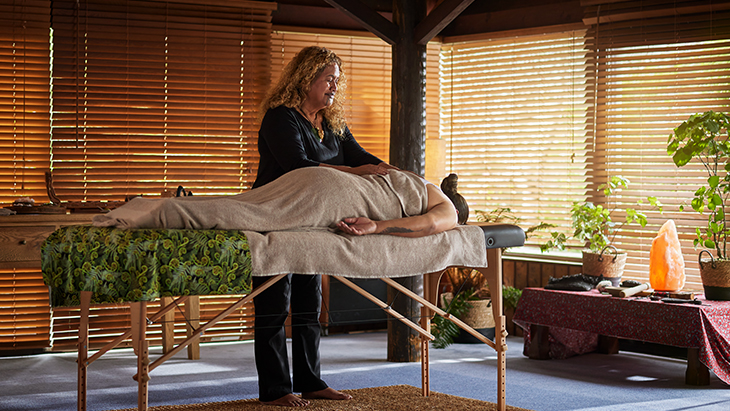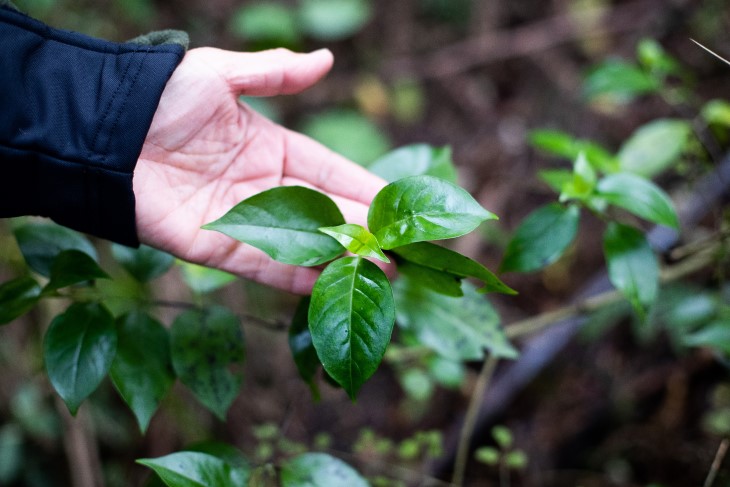Rongoā Māori helps Northland recover from Cyclone Gabrielle
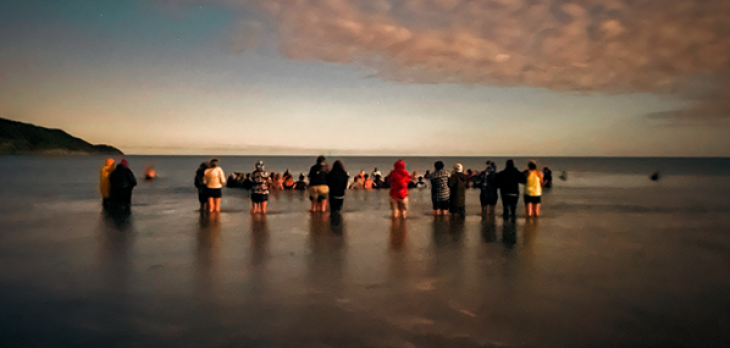
Funding from ACC has helped people in Northland impacted by Cyclone Gabrielle to recover by using rongoā Māori, a traditional form of healing available as an ACC rehabilitation option for the past four years.
Rongoā Māori practitioner Atarangi Muru was born and raised in Te Tai Tokerau (Northland). So when she saw her hapori (community) in need in the wake of Cyclone Gabrielle, she didn’t hesitate to lend a helping hand.
More than a year later, one of her standout memories from the natural disaster is how everyone rallied together.
“The one thing that really stuck out for me was how readily people will come together to help others in need,” says the 66-year-old from Ahipara, who runs the Natural Oora Healing Clinic.
Atarangi (Te Rarawa, Ngāti Kurī) says the impact of Gabrielle can still be felt in Northland. The cyclone caused widespread flooding, erosion in the Mangamuka Gorge (which is still closed), and damaged homes in Hokianga, as well as causing ongoing problems with drinking water.
Atarangi says many locals have trauma related to Cyclone Gabrielle. Some say they will never park their cars by the sea again, especially if there are warnings of a cyclone coming.
While the damage was not as severe as on the East Coast region of New Zealand, Northland still had homes flooded and washouts on the roads, which stopped people from going to work or home. There was no electricity for over 11 days and power was out for even longer in some regions.
“It was pretty scary,” Atarangi says.
“People couldn't go to work, children couldn't attend school. The elderly and the young were frightened as the wind and rain didn't let up for a few days, especially in the Hokianga area.
“The cyclone struck before a big shopping day for those on benefits, so food and other household amenities were needed.”
‘People felt cared for’
There are two campgrounds in Ahipara. The one at Te Kōhanga was hit hardest.
People were put up for the evening at the Ahipara rugby clubrooms and a team of helpers cooked meals for everyone and brought in mattresses from the local marae. Roma Marae had a number of holiday makers staying there.
“We took food from our own fridges – tinned food, vegetables, whatever we could get our hands on – to feed the people and help them through their crises,” Atarangi says.
“We also offered whakamoemiti (to express thanks) or karakia (prayers) if wanted – some were happy to receive, others were okay as they'd been doing that 'hard out' themselves since they’d been rescued.
“It made a difference – people felt cared for. They were grateful for the warm food and a dry place away from the storm.”
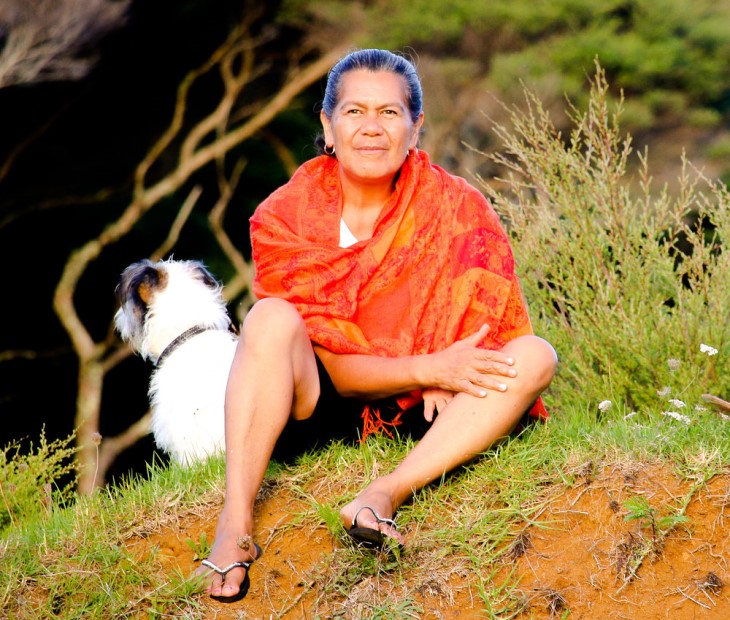
Making a difference with rongoā Māori
At the start of the recovery, Atarangi says the role of her and her colleagues was to offer practical support – to cook, clean and provide people with the basics.
When things settled down though, they got into helping people recover with the healing powers of rongoā Māori (traditional Māori healing).
Rongoā Māori includes mirimiri and romiromi (bodywork), whitiwhiti kōrero (support and advice) and karakia (prayer). It treats the whole person, not just the ailment, which was important in this mahi (work) with the stress and pressure people were under.
“In this sense, one could not 'fix’ the fear that many mothers and fathers had for their children,” Atarangi says.
“The only way to comfort them was to feed them, listen to them, and allow them to get these horrors out of their mind and body, then offer a romiromi session if they wanted one.
“In my work, most of the stress was on the mind, the heart, the shoulders, the neck, back and legs, held in certain areas where the memory would be stored.”
ACC steps in to provide support
ACC recognised its kiritaki (clients) in Te Tai Tokerau (Northland), Tairāwhiti (Gisborne) and Te Matau-a-Māui (Hawke’s Bay) required support outside of primary care during their recovery and wanted to make it easier for them to access this.
At the same time, we also recognised the important role rongoā Māori could play in supporting the wellbeing of the wider community.
So we approved $60,000 as a one-off Regional Injury Prevention Grant. This was shared among five lead community health providers in the impacted rohe (regions) to help them continue with their outreach to whānau in their hapori (communities).
“We saw the opportunity to support providers to deliver rongoā Māori in the community to ensure effective culturally-aligned care was available to whānau that needed it,” says Eldon Paea, Head of Māori Health Partnerships for ACC.
Natural Oora was awarded a $20,000 grant to help people in need, providing 20 outreach clinics in the first three months of the funding. Natural Oora partnered with other groups of rongoā Māori healers, including tohunga (learned person) from Ngāti Kahu, Rāwene Hospital and the Hokianga region, to reach as many areas as possible.
A pure (cleanse) was led by Tangaroa Ngaropo Tawio on the shores of Paripari, Ahipara. Whānau travelled from all around the motu to attend.

Outreach and mahi rākau clinics were provided in Te Hāpua, Te Kao, Ahipara, Hokianga, Waimā, Panguru, Whatuwhiwhi, Pawarenga, Mangamuka, Kaitaia and Awanui.
“Our outreach consisted of bodywork, the delivery of wai rākau (plant-based medicines), provided by Jo Murray and her group from Te Hiku, and any other needs, like wāhine who were hapū (pregnant) and the stress this caused at the time.”
Atarangi says the ACC funding enabled Natural Oora to provide clinics in remote communities, while people didn’t have to worry about payment for the care they received.
“It gave us good mechanisations to move throughout more communities than we usually would, including working with young women from Ahipara, Pukepoto and Kaitaia, who were nervous and needed techniques to help themselves let go of anxiety, fear and sadness.”
Delivering equity for tangata whenua
Rongoā Māori is in Atarangi’s blood. When she was eight, she started assisting her kuia (elder women), who would work on her uncle for an injury he sustained during World War II with the 28th Māori Battalion.
She says it’s been great to see rongoā Māori offered as a rehabilitation option through ACC since June 2020.
Our research shows Māori are more likely to experience a serious injury than non-Māori, but less likely to make an injury claim.
ACC data shows rongoā Māori claim volumes have doubled in the 12 months to March 2024, with 5,054 additional claims using rongoā.
“Offering rongoā as a rehabilitation service is part of our continuing efforts to deliver equity for Māori,” Eldon says.
“It presents injured Māori, and all New Zealanders, with more choice in their recovery options, and is a positive step towards delivering equity for tangata whenua.”
As part of our commitment to growing access to and awareness of rongoā Māori across the health sector, we’re also supporting the inaugural Rongoā Māori Conference in Rotorua on 22-23 May.
“We want to bring together our health providers and rongoā practitioners to see how we can work together to meet all the needs of our communities,” Eldon says.
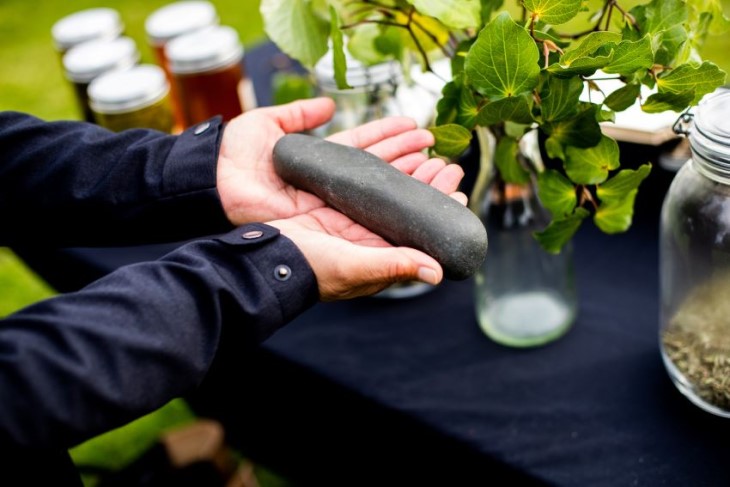
Rongoā Māori in Northland
There are 24 organisations/practitioners in Northland registered with ACC to provide rongoā Māori services.
From June 2020 to March 2024, ACC has supported access to rongoā Māori services for 658 kiritaki in the Northland region.
More information on our Rongoā Māori service across the motu (country) is available on the ACC website.
ACC Rongoā Māori Conference
More information about the inaugural Rongoā Māori Conference is available on the conference website.



